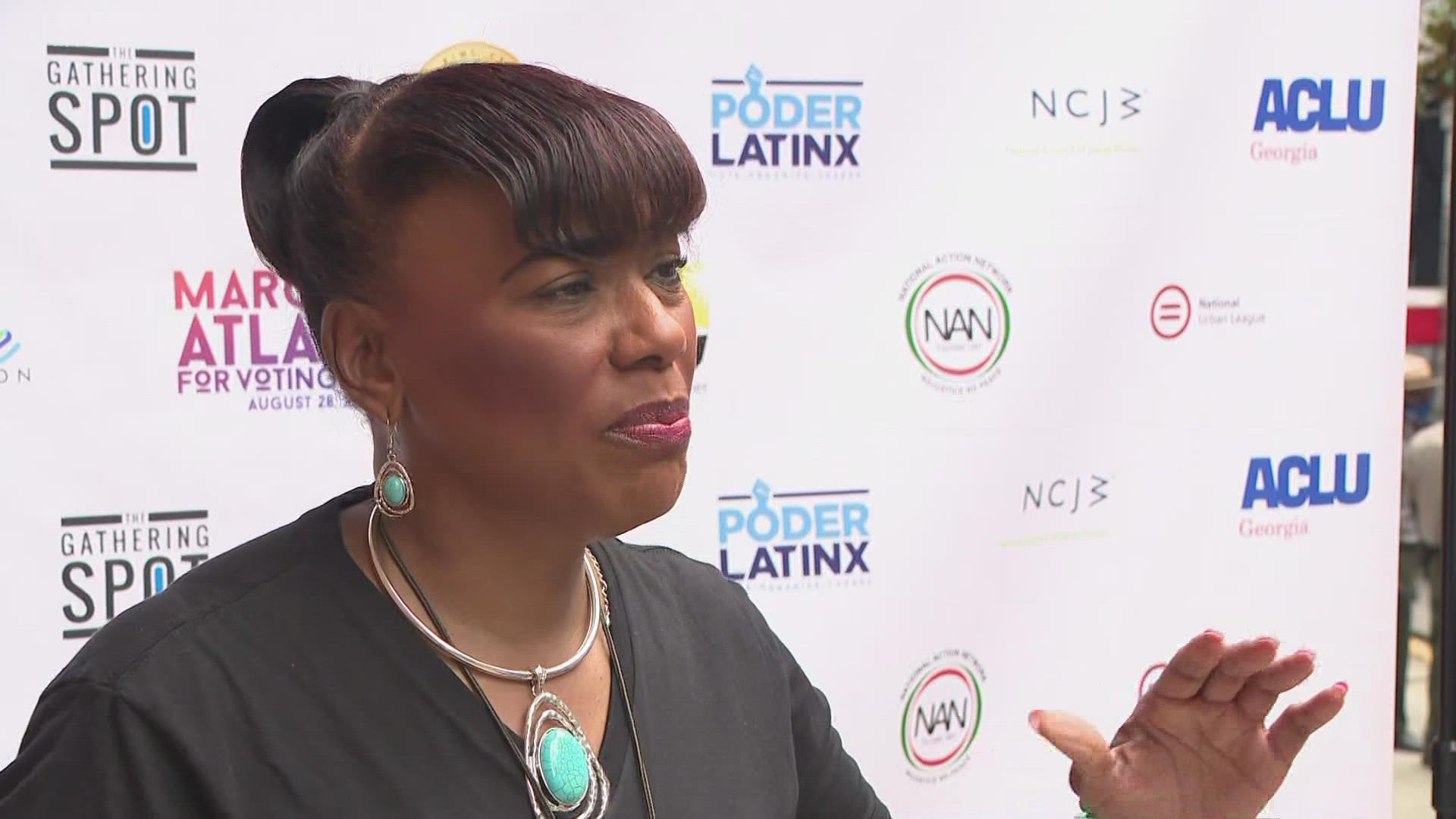ATLANTA — Dr. Bernice King, the King Center CEO and daughter of Martin Luther King, Jr., offered an explanation of the center's and her family's plans for the MLK Day holiday in 2022 after her brother indicated this week they would not formally celebrate it unless voting rights bills pass in Congress.
In a video message posted to social media, Bernice King said she stands in solidarity with her brother, Martin Luther King III, in "calling our nation's attention to securing and protecting the most sacred right of our democracy, which is the right to vote."
Earlier this week CNN reported that Martin Luther King III had a rally and march planned for Jan. 15, Martin Luther King, Jr.'s 93rd birthday, and Jan. 17, the federal holiday recognizing the Civil Rights icon.
King III's wife, Arndrea Waters King, told the news outlet their family "cannot simply in good faith celebrate (MLK) or celebrate that legacy with this current attack on access to the ballot box."
Bernice King said in her video message that she supported the message, noting that "if voting rights is still hanging in the balance" by MLK day, she is calling for supporters to "speak and act in a way to ensure that this nation lives up to its promise of democracy, by putting pressure on our United States Senate to bypass the filibuster and instead of taking the King Holiday off, they should make it a 'day on' to pass the voting rights acts."
Bernice King added the King Center would still "commemorate" MLK Day with planned services including the Beloved Community Awards and the digital Beloved Community Global Summit in advance of the holiday, and commemoration services at Ebenezer Baptist Church along with on-site voter registration and education actions on MLK Day itself.
"This is critical, because as important as it is that voting rights legislation is passed - and I can't overemphasize how important that is - it is equally important though that we mobilize people to vote and ensure that the masses are educated on how to leverage our votes toward creating a just, humane, equitable and peaceful nation and world," Bernice King said.
Currently a pair of voting rights bills - the Freedom to Vote Act and the John Lewis Voting Rights Advancement Act - are stalled in the U.S. Senate.
There appears to be majority support for both bills in the Democrat-held Senate, but not the 60-vote threshold needed to overcome a filibuster.
Activists have called on Democrats, who own a 51-49 majority in the upper chamber of Congress, to change the Senate's filibuster rule. Doing so formally would also require a 60-vote two-thirds majority, but activists are pressing for Democrats to use the so-called "nuclear option" to do so - described by Democracy Docket as a "procedural loophole that allows a new interpretation of Senate rules to become precedent."
Democracy Docket further explains:
To do so, the majority leader has to bring forward a non-debatable point of order, stating that a vote on cloture is by majority vote (which we know to be untrue based on the current rules that state cloture takes 60 votes). Since this is a new interpretation of Senate rules, the presiding officer will rule against this point of order, sticking to precedent. However, the presiding officer’s objection can then be overturned on appeal by only a simple majority, hence changing the Senate rules. Consequently, Democrats could lower the cloture vote minimum from 60 votes to a simple majority if all 50 members of the Democratic Caucus agree with such a change.
Democrats in the Senate previously used the "nuclear option" in 2013 to eliminate the filibuster against presidential nominations.

